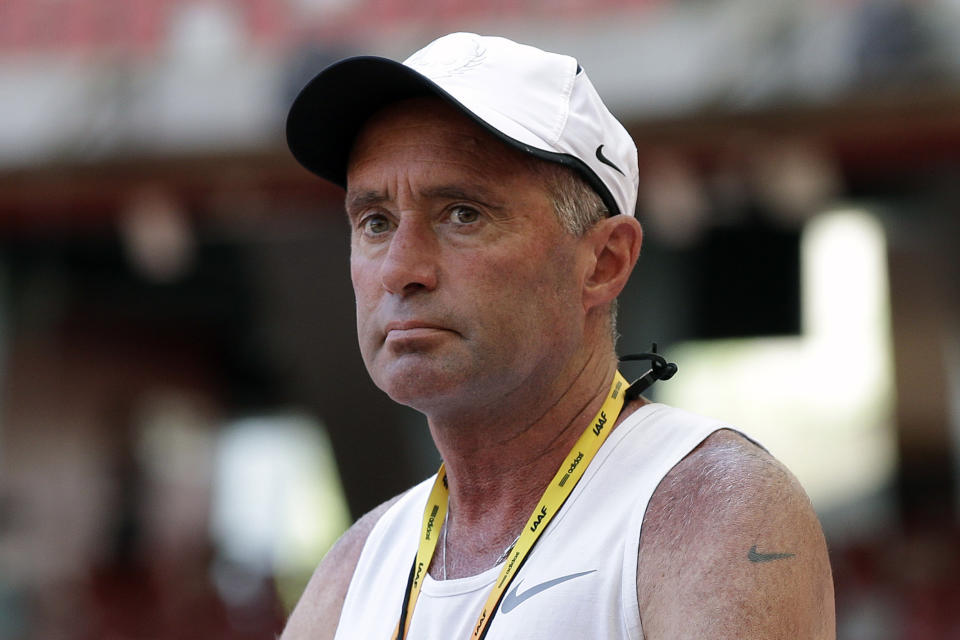Report: Banned coach used Nike HQ for doping experiment

Suspended track coach Alberto Salazar reportedly used Nike headquarters to conduct at least one doping experiment, according to the Wall Street Journal.
Salazar, who the U.S. Anti-Doping Association suspended for four years Monday, was the head coach of the Nike Oregon Project. Salazar and another doctor, Jeffrey Brown, were accused of “orchestrating and facilitating prohibited doping conduct,” according to the USADA. The Nike Oregon Project has produced a number of Olympic runners.
Salazar’s experiments were aimed at testing the effects performance-enhancing drugs had on subjects. Emails show one executive at Nike, Mark Parker, was aware of Salazar’s experiments. The USADA report also claims at least one of those experiments — which involved testing topical testosterone cream — was conducted in one of Nike’s labs.
The 61-year-old Salazar claims he conducted the experiments to determine whether athletes could be sabotaged by competitors. USADA argued that those experiments could also be used to figure out how to beat tests, according to the Wall Street Journal.
According to the reports, Mr. Salazar and Dr. Brown devised the testosterone experiment after Mr. Salazar became increasingly concerned that his athletes could be victims of sabotage by competitors. Galen Rupp, the American distance runner, testified to the arbitration panel that he felt a trainer come up to him at a May 2009 track meet and proceed to “rub something wet on his back.”
USADA argues that “this same experiment can be used to further the nefarious purpose of evading doping control just as easily as it can be used for the claimed prophylactic purpose of determining the likely success of attempted sabotage.”
While that USADA statement suggests it believes Salazar was out to beat the system, that’s not the case. In its report, USADA says Salazar “does not appear to have been motivated by any bad intention to commit the violations,” and that Salazar made “unintentional mistakes that violated the rules,” according to NPR.
Salazar cited those passages from USADA’s report in a statement on Nike’s website. Salazar added that he has always respected the World Anti-Doping Agency’s policy, before announcing he would appeal the suspension. Nike said it supported Salazar’s decision.
———
Chris Cwik is a writer for Yahoo Sports. Have a tip? Email him at christophercwik@yahoo.com or follow him on Twitter! Follow @Chris_Cwik
More from Yahoo Sports:
